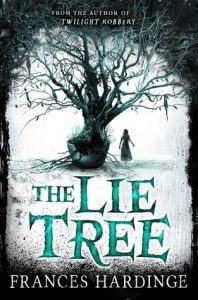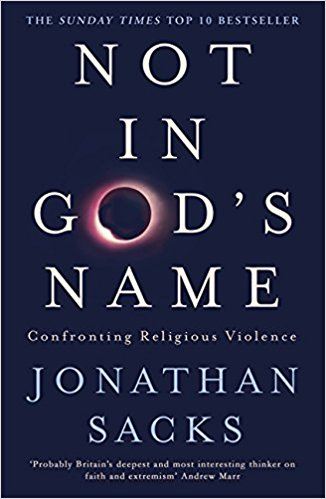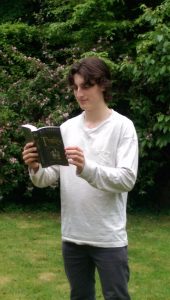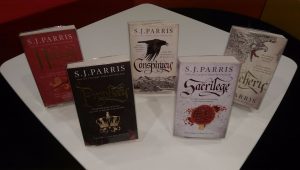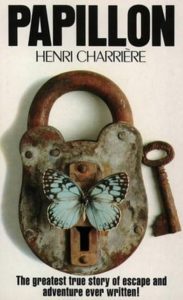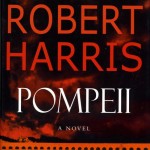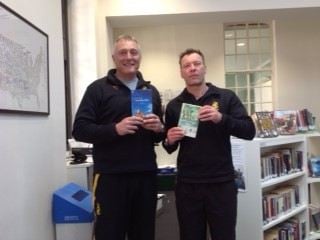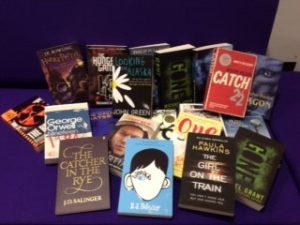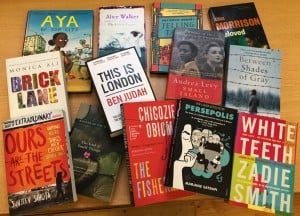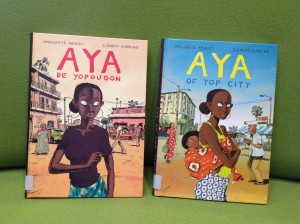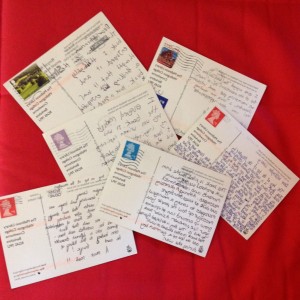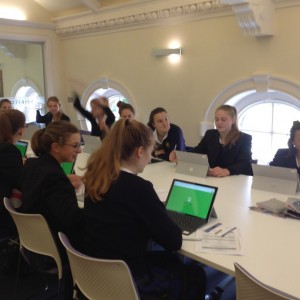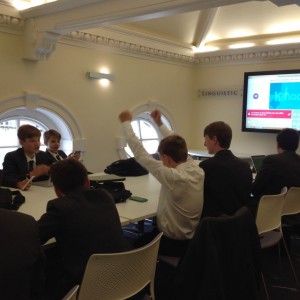Wellington College Big Book Vote 2017
We do love a big list of books and hope all of you are just as keen to spot your favourites and find new reading inspiration in the next chunk of the poll. Below we have listed all the books that polled more than vote. The next blog post will reveal all the remaining books voted for by one person. Thank you to everyone who voted and enjoy this incredibly eclectic list of books. Happy reading! Visit the library to borrow copies of these books.
Here is the list of our top 20 most popular books:
1st Harry Potter by J.K Rowling
2nd Pride and Prejudice by Jane Austen
3rd 1984 by George Orwell
4th Gone by Michael Grant
5th Cherub by Robert Muchamore
- To Kill a Mockingbird by Harper Lee
- The Picture of Dorian Gray by Oscar Wilde
- The Catcher in the Rye by J.D. Salinger
- The Great Gatsby by F. Scott Fitzgerald
- Catch 22 by Joseph Heller
- His Dark Materials by Philip Pullman
- The Hunger Games by Suzanne Collins
- Looking for Alaska by John Green
- One by Sarah Crossan
- The boy in the striped pyjamas by John Boyne
- The Martian by Andy Weir
- Inheritance Cycle (Eragon) by Christopher Paolini
- The Woman in Black by Susan Hill
- Atonement by Ian McEwan
- Birdsong by Sebastian Faulks
Tied in 21st position
Bodyguard series by Chris Bradford
Wonder by R. J. Palacio
Lord of the Rings by J. R. R. Tolkien
The Kite Runner by Khaled Hosseini
A Thousand Splendid Suns by Khaled Hosseini
The Girl on the Train by Paula Hawkins
Tied in 27th place
A Monster Calls by Patrick Ness
Animal Farm by George Orwell
Divergent by Veronica Roth
Jane Eyre by Charlotte Bronte
Rebecca by Daphne Du Maurier
Sherlock Holmes series by Arthur Conan Doyle
The Curious Incident of The Dog in The Night-Time by Mark Haddon
Maze Runner by James Dashner
The Hitchhiker’s Guide to the Galaxy by Douglas Adams
Chaos Walking series (Knife of Never Letting Go) by Patrick Ness
Tied in 37th place
Any Human Heart by William Boyd
Girl Missing by Sophie McKenzie
Heart of Darkness by Joseph Conrad
More than this by Patrick Ness
Noughts & Crosses by Malorie Blackman
Pig Heart Boy by Malorie Blackman
Sapiens: a brief history of humankind by Yuval N. Harari
The Bell Jar by Sylvia Plath
The Girl with the Dragon Tattoo by Stieg Larsson
The Goldfinch by Donna Tartt
The Hobbit by J. R. R. Tolkien
The Secret History by Donna Tartt
War Horse by Michael Morpurgo
Wuthering Heights by Emily Bronte
The Book Thief by Markus Zusak
Tied in 52nd place
Alex Rider by Anthony Horowitz
Brave New World by Aldous Huxley
Everything everything by Nicola Yoon
Great Expectations by Charles Dickens
I am Pilgrim by Terry Hayes
Life of Pi by Yann Martel
Lord of the Flies by William Golding
Me Before You by Jojo Moyes
Of Mice and Men by John Steinbeck
Perfume by Patrick Süskind
Ready Player One by Ernest Cline
Sophie’s World by Jostein Gaarder
The circle by Dave Eggers
The Far Away Tree by Enid Blyton
The Giver by Lois Lowry
The Night Circus by Erin Morgenstern
The outsiders by S. E. Hinton
The Chronicles of Narnia by C. S. Lewis
Wild Swans by Jung Chang
Young Bond – Silverfin (and first book) by Charlie Higson
Tied in 72nd place
12 Years a Slave by Solomon Northup
A Court of Mist and Fury by Sarah J. Maas
A Farewell to Arms by Ernest Hemingway
A Short History of Nearly Everything by Bill Bryson
A Universe from Nothing by Lawrence M. Krauss
All the light we cannot see by Anthony Doerr
Alone on a wide wide sea by Michael Morpurgo
Anna Karenina by Leo Tolstoy
Arcadia by Tom Stoppard
Bleak House by Charles Dickens
Candide by Voltaire
Captain Corelli’s Mandolin by Louis de Bernieres
Charlotte’s Web by E. B. White
Children of the Lamp by P. B. Kerr
Cold Comfort Farm by Stella Gibbons
Coram Boy by Jamila Gavin
Crime and Punishment by Fyodor Dostoyevksy
Diary of a Wimpy Kid by Jeff Kinney
Do No Harm: Stories of Life, Death, and Brain Surgery by Henry Marsh
Don Quixote by Miguel de Cervantes
Frankenstein by Mary Shelley
Freakonomics: a rogue economist explores the hidden side of everything by Steven D. Levitt and Stephen J. Dubner
Geek Girl by Holly Smale
Gone Girl by Gillian Flynn
Goodnight Mister Tom by Michelle Magorian
Grapes of Wrath by John Steinbeck
Guess How Much I Love You by Sam McBratney
Guns, Germs and Steel by Jared Diamond
Holes by Louis Sachar
How to be a woman by Caitlin Moran
How to build a girl by Caitlin Moran
Jonathan Livingston Seagull by Richard Bach
Kensuke’s Kingdom by Michael Morpurgo
Lady Midnight by Cassandra Clare
Long walk to freedom by Nelson Mandela
Notes from a Small Island by Bill Bryson
Oliver Twist by Charles Dickens
Once by Morris Gleitzman
One Hundred Years of Solitude by Gabriel Garcia Marquez
Paper Towns by John Green
Papillon by Henri Charriére
Percy Jackson and the Sea of Monsters by Rick Riordan
Plain Truth by Jodi Picoult
Poor Economics by Abhijit Banerjee and Esther Duflo
Private peaceful by Michael Morpurgo
Ranger’s Apprentice by John Flanagan
Red Queen by Victoria Aveyard
Room by Emma Donoghue
Rubicon by Tom Holland
Shantaram by Gregory David
Since You’ve Been Gone by Morgan Matson
Steal like an artist by Austin Kleon
Tess of the D’Urbervilles by Thomas Hardy
The Boy on the Top of the Mountain by John Boyne
The Cellist of Sarajevo by Steven Galloway
The Chrysalids by John Wyndham
The Da Vinci Code by Dan Brown
The Elephant Vanishes by Haruki Murakami
The Four Agreements by Miguel Ruiz
The Little Prince by Antoine De Saint-Exupéry
The Master and Margarita by Mikhail Bulgakov
The Name of the Rose by Umberto Eco
The Old Man and the Sea by Ernest Hemingway
The Selection by Kiera Cass
The Selfish Gene by Richard Dawkins
The Simpsons and Their Mathematical Secrets by Simon Singh
The Wind-Up Bird Chronicle by Haruki Murakami
There will be lies by Nick Lake
Throne of Glass by Sarah J. Maas
Uglies by Scott Westerfeld
Unbroken by Laura Hillenbrand
War and Peace by Leo Tolstoy
Watchmen by Alan Moore
We Need to Talk About Kevin by Lionel Shriver
When breath becomes air by Paul Kalanithi
Your fathers, where are they? And the prophets, do they live forever? by Dave Eggers
Anne of Green Gables by L. M. Montgomery
Anthem by Ayn Rand
Far from the Madding Crowd by Thomas Hardy
The Strange Case of Dr Jekyll and Mr Hyde by Robert Louis Stevenson
Game of Thrones by George R. R. Martin
Dr Zhivago by Boris Pasternak
The Siege by Helen Dunmore
The History Boys by Alan Bennett
Maya Angelou autobiography books (7)
What If? Serious scientific answers to absurd hypothetical questions by Randall Munroe
When Mr Dog Bites by Brian Conaghan
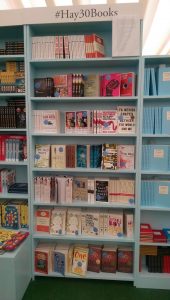 These #HAY30BOOKS will be discussed and celebrated at our festivals around the world – in Mexico, Peru, Spain, Colombia and Denmark – and on our digital channels throughout the year.
These #HAY30BOOKS will be discussed and celebrated at our festivals around the world – in Mexico, Peru, Spain, Colombia and Denmark – and on our digital channels throughout the year.
